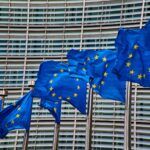The EU is preparing rules which would make it possible to stop payments from the EU budget to member states that do not respect the rule of law.

Parliament negotiators reached a provisional agreement with the Council presidency on 5 November on legislation establishing a mechanism that would allow the suspension of budget payments to a member state violating the rule of law.
The decision on the suspension will have to be taken by the Council acting by a qualified majority on the proposal of the European Commission.
MEPs have been warning that European values are at risk and that EU funds from the long-term budget and the recovery plan should not be put into the hands of those working against democracy and fundamental rights in Europe.
In a report adopted on 7 October, MEPs called for reinforcement of the rule of law across Europe through a new mechanism andfor effective sanctions on member states found to be in violation. They also insisted that the EU institutions should agree clear rules that link receiving EU funds to how a member state respects the rule of law.
What is rule of law?
Rule of law is laid down in the EU treaties as one of the values on which the Union is based. It means that governments should be bound by law, that they should not take arbitrary decisions and that citizens should be able to challenge their actions in independent courts.
EU mechanisms for the protection of rule of law
The EU has existing tools at its disposal to protect the rule of law. On 30 September 2020, the European Commission published the first annual rule of law report that monitors both positive and negative developments relating to the rule of law in all member states. It has been monitoring Romania and Bulgaria since they joined the EU in 2007.
The case for further measures
MEPs have argued that existing tools are insufficient. While there are ongoing hearings in the Council under Article 7 regarding Poland and Hungary, Parliament has expressed its regret about the lack of significant progress by the two member states in addressing the issues.
In a plenary debate on 5 October, MEPs welcomed the annual rule of law report launched by the Commission, but called for more action on enforcement. “Monitoring alone will not bring back judicial independence in Poland, nor will it save the Index media [outlet] in Hungary,” said Michal Šimečka (Renew Europe, Slovakia).
Šimečka drafted a report adopted on 7 October, calling for a mechanism that consolidates existing instruments and establishes an Annual Monitoring Cycle, with country-specific recommendations, timelines and targets for implementation. The cycle should serve as the basis for triggering Article 7 or suspending budget funds for a member state.






Leave a Reply